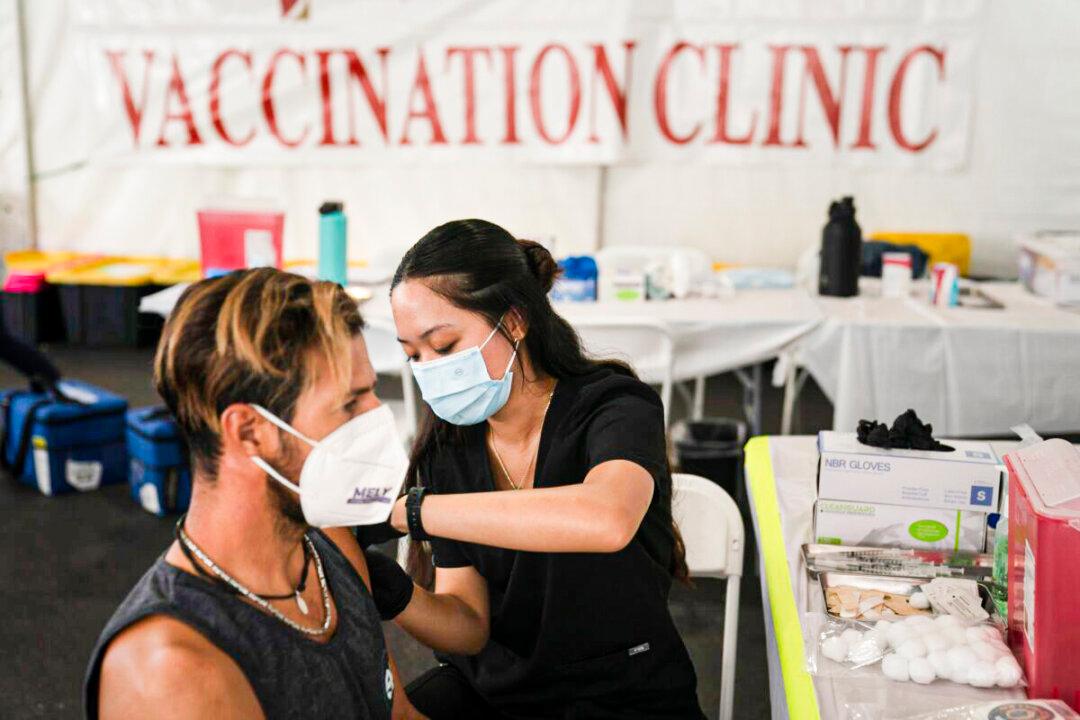Researchers with Oxford University on Tuesday announced there is currently “no evidence” to suggest that common COVID-19 vaccines won’t protect against the Omicron CCP virus variant that was recently discovered and has caused worldwide panic.
So far, Oxford University said in a statement, there is limited data on Omicron and that it would carefully review the impact the variant has on vaccines. Oxford partnered with drugmaker AstraZeneca to create one of the most commonly used vaccines in the world.





